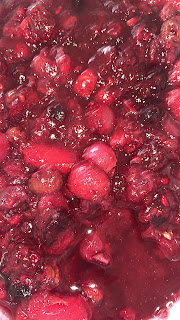The canary in the coal mine ...
Day 158 #365DaysWild
Nature and the quality of the food we eat are, in my opinion, inextricably linked.
 |
| Organically grown fruit |
Healthy, nutrient-rich food cannot be grown in over-ploughed ground that is drenched in artificial fertilisers, herbicides and pesticides. 'The canary in the coal mine' is biodiversity. Where soil and food production are healthy and in sympathy with nature, wildlife will be able to flourish and the food produced will have greater health benefits. I refer you to the excellent science shared in the Zoe podcast 'The truth about organic food' in which they discuss the risks to health of eating food that is not grown organically.
Yesterday, Sam Knowlton (Agronomy Consultant)
drew attention to an article in the journal 'Nature' published on 30 November 2023 on the deterioration in the food quality of rice and wheat over a fifty year period.
I quote:
'Rice and wheat, two of the most crucial food staples worldwide, have experienced a significant decline in nutritional quality over the past 50 years.
The essential mineral concentration in rice has decreased by 36%, while in wheat, it has dropped by 57%.
At the same time, toxic elements like aluminum have increased by as much as 78%.
This deficiency in nutritional quality, coupled with elevated concentrations of toxic elements, lies at the heart of the overfed yet undernourished paradox.
 |
| Home grown green beans |
As I write, a significant proportion of the nation faces a cost of living crisis. Simply keeping warm and providing enough food for themselves and their families consumes every waking hour for far too many people.
 |
| Growing our own organic food is better for us and better for nature |
Producing healthy, regenerative food that people can afford is achievable with sufficient political will. The potential beneficial impact on health and quality of life have been demonstrated. The long-term benefits to the NHS in preventing food-related health conditions could be significant.

No comments:
Post a Comment